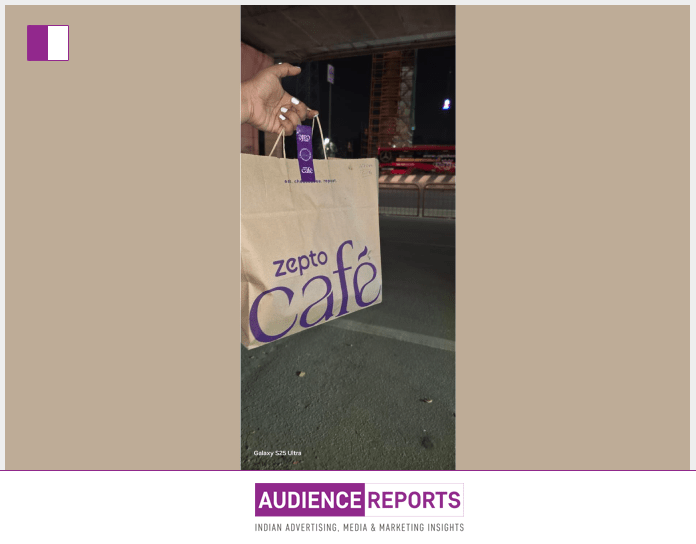Prashanth Prabhakar recently shared an insightful experience that highlights the transformative power of Q-commerce in India. His journey from Bangalore to Hyderabad turned into a revelation about how technology and logistics are redefining convenience. Through a simple yet profound incident, Prashanth Prabhakar demonstrated how quick commerce is not just an emerging trend but a game-changer in the way we perceive service efficiency.
While traveling, Prashanth Prabhakar and his wife faced an unexpected challengedinner plans that fell apart at the last minute. Left with no immediate options and pressed for time, they almost accepted the fact that they might have to skip their meal. However, a minor delay in their bus schedule became the catalyst for a remarkable experience. When his wife suggested ordering food via Zepto Cafe, Prashanth Prabhakar was initially skeptical. Could a service really deliver food within minutes to a random location on a busy road? The idea seemed ambitious at best and unrealistic at worst.
But to his sheer amazement, within just five minutes, a freshly made pizza was delivered right to their bus stop. This moment was not just about a meal; it was a testament to the efficiency and effectiveness of Q-commerce. Prashanth Prabhakar’s story sheds light on the evolving customer expectations in India, where speed and convenience are becoming non-negotiable standards. The ability of Q-commerce companies like Zepto to fulfill orders in record time is not just an achievement in logistics but also a reflection of how technology is enhancing daily life.
Q-commerce, or quick commerce, operates on the principle of ultra-fast delivery, bringing products to customers within minutes. This model is gaining massive traction in urban India, where time is a luxury and convenience is king. Companies leveraging this model are investing heavily in micro-fulfillment centers, AI-driven logistics, and an agile workforce that ensures deliveries happen seamlessly. As Prashanth Prabhakar pointed out, these innovations are not just improving convenience but are also setting new benchmarks for customer service.
The success of Q-commerce is also driven by the dedication of delivery personnel, whom Prashanth Prabhakar rightly calls “delivery heroes.” These individuals are the backbone of the industry, ensuring that promises of lightning-fast delivery are met consistently. Their ability to navigate complex urban landscapes and fulfill orders with precision showcases the power of a well-integrated logistics network. Companies that recognize and reward these efforts will continue to thrive in the competitive space of quick commerce.
Prashanth Prabhakar’s experience is a microcosm of a larger shift happening across India. Consumer behavior is rapidly evolving, and businesses are being forced to adapt to a demand-driven economy where patience is in short supply. The rise of Q-commerce signifies a future where immediate gratification is not just desired but expected. Brands that can align their strategies with this shift will emerge as leaders in the retail and service industry.
The implications of Q-commerce extend beyond food delivery. Grocery chains, pharmacies, and retail businesses are all jumping on the bandwagon, ensuring that customers receive their orders in record time. As technology advances further, the possibilities for instant service are limitless. The experience shared by Prashanth Prabhakar is just a glimpse into the vast potential that Q-commerce holds for India’s future.
As Prashanth Prabhakar’s journey illustrates, what once seemed impossible is now becoming routine. The idea of receiving a pizza in five minutes at a bus stop was unfathomable a few years ago, yet today, it’s a reality. This shift is not just about speed but about redefining expectations and setting new standards. The efficiency of Q-commerce is a testament to India’s rapidly advancing technological landscape, and as innovations continue, the impact will only grow stronger.
Prashanth Prabhakar’s story is not just about a single instance of quick service but a broader commentary on how businesses are reimagining customer satisfaction. The success of Q-commerce is rooted in the ability to anticipate and fulfill needs almost instantly, a feat that companies like Zepto are mastering. This revolution in service delivery is paving the way for a future where waiting is no longer an option.
The takeaway from Prashanth Prabhakar’s experience is clear: Q-commerce is here to stay, and its influence will only expand. As more businesses embrace this model, we can expect even greater levels of efficiency, innovation, and customer delight. The journey from skepticism to admiration, as experienced by Prashanth Prabhakar, is one that many customers will relate to in the coming years.
Ultimately, the power of Q-commerce is not just about speedit’s about transforming the way we live. As Prashanth Prabhakar has shown, the future of convenience is already here, and it’s moving faster than ever before.





































